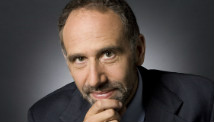NEW YORK (Reuters) - The benchmark Standard & Poor's 500 index ended at a five-year high on Friday, lifted by reports showing employers kept up a steady pace of hiring workers and the vast services sector expanded at a brisk rate.
The gains on the S&P 500 pushed the index to its highest close since December 2007 and its biggest weekly gain since December 2011.
Most of the gains came early in the holiday-shortened week, including the largest one-day rise for the index in more than a year on Wednesday after politicians struck a deal to avert the "fiscal cliff."
The Dow Jones industrial average <.dji> gained 43.85 points, or 0.33 percent, to 13,435.21. The Standard & Poor's 500 Index <.spx> rose 7.10 points, or 0.49 percent, to 1,466.47. The Nasdaq Composite Index <.ixic> edged up 1.09 points, or 0.04 percent, to 3,101.66.
For the week, the S&P gained 4.6 percent, the Dow rose 3.8 percent and the Nasdaq jumped 4.8 percent to post their largest weekly percentage gains in more than a year.
The CBOE Volatility index <.vix>, a measure of investor anxiety, dropped for a fourth straight session, giving the index a weekly decline of nearly 40 percent, its biggest weekly fall ever. The close of 13.83 on the VIX marks its lowest level since August.
In Friday's economic reports, the Labor Department said non-farm payrolls grew by 155,000 jobs last month, slightly below November's level. Gains were distributed broadly throughout the economy, from manufacturing and construction to healthcare.
Also serving to boost equities was data from the Institute for Supply Management showing U.S. service sector activity expanding the most in 10 months.
With the S&P 500 index at a five-year closing high, analysts said any gains above the index's intraday high near 1,475 in September may be harder to come by.
"We are getting to a point where we need a strong catalyst, which could be earnings, it could be three months of good economic data, it could be a variety of things," said Adam Thurgood, managing director at HighTower Advisors in Las Vegas, Nevada.
"What is going on right now is this conflicting view of fundamentals look pretty good and improving, and then you've got these negative tail risks that could blow everything up," Thurgood said.
He referred to "a fiscal superstorm brewing" of issues still left unresolved in Washington, including tough federal budget cuts and the need to raise the government's debt ceiling all within a couple of months.
The rise in payrolls shown by the jobs data did not make a dent in the U.S. unemployment rate still at 7.8 percent.
A Reuters poll on Friday of economists at Wall Street's top financial institutions showed that most expect the Fed in 2013 to end the program with which it bought Treasury debt in an effort to stimulate the economy.
A drop in Apple Inc shares of 2.6 percent to $528.36 kept pressure on the Nasdaq.
Adding to concerns about Apple's ability to produce more innovative products, rival Samsung Electronics Co Ltd is expected to widen its lead over Apple in global smartphone sales this year with growth of 35 percent. Market researcher Strategy Analytics said Samsung had a broad product lineup.
Eli Lilly and Co
Fellow drugmaker Johnson & Johnson
Shares of Mosaic Co
Volume was modest with about 6.07 billion shares traded on the New York Stock Exchange, NYSE MKT and Nasdaq, slightly below the 2012 daily average of 6.42 billion.
Advancing stocks outnumbered declining ones on the NYSE by 2,287 to 701, while on the Nasdaq, advancers beat decliners 1,599 to 866.
(Reporting by Chuck Mikolajczak; Editing by Nick Zieminski and Kenneth Barry)



